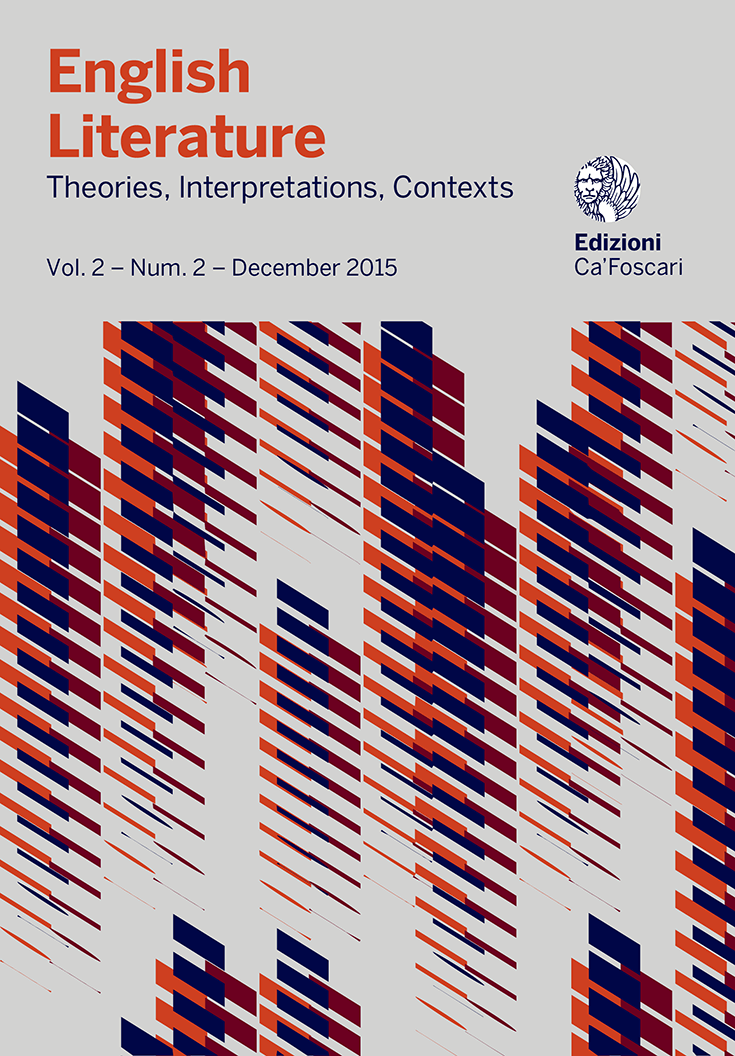
- search 421 views
- file_download 37 download
- keyboard_capslock metadata
-
mark_email_readIscriviti alla newsletter
The Chemistry of Taste
Aesthetics, Literature, and the Rise of the Impure
abstract
The debate on impure images in post-Reformation England, and the different policy adopted by Reynolds and Hogarth in order to redefine the value of art are considered: the former stressing the purity of the old masters, the latter emphasizing formal elements of beauty. The writings of Hazlitt are then examined inasmuch as his comments on fashion and art academies are relevant to the dawning democracy of taste, and describe its features in the wide socio-cultural context. Hazlitt’s remarks on taste are confirmed in the following decades by progress in technology, chemistry especially, which allows replicas of valuable materials and art works to be made: in 1851 the Great Exhibition lays a strong emphasis on the tasteful replicas of art works. Taste is synonymous with the products of industry. Chemistry has now become the leading metaphor adopted by critics who comment on modern taste – Ruskin, Pater, Lee – as it provides the fittest illustration of the mixed features of contemporary art. Not only art criticism but also fiction, suggest the prominent epistemic role of chemistry: in Collins’s The Woman in White and Stevenson’s Dr Jekyll and Mr Hyde, the ambiguous pendulum between pure and impure defines not only the chemistry of taste but also the impure quality of modern life.
Keywords: Aesthetics • Taste • Narration • Chemistry